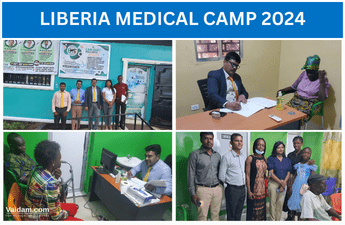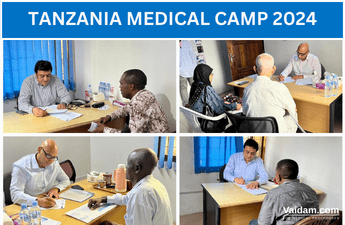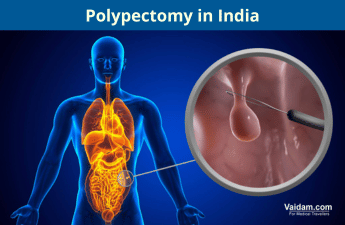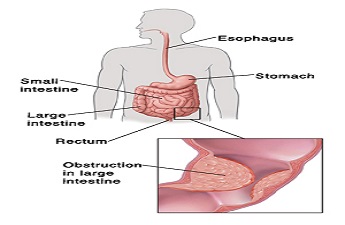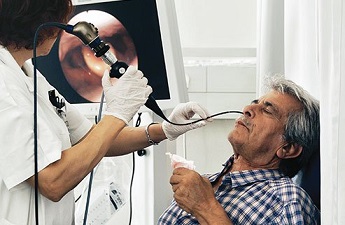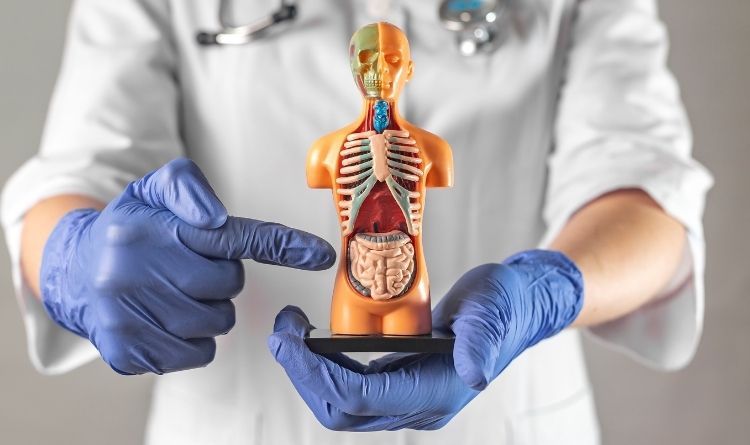
Gastrointestinal surgeries revolve around treating disorders of the digestive system. The success rates of these surgeries have improved considerably over the past few decades. Thanks to modern medical technology and innovative surgical techniques like minimally invasive and robotic surgeries.
Another way of improving the results of gastrointestinal surgery is having proper diagnostic and preoperative tests. If you have been suggested surgery for any digestive tract disease, this blog is for you. You will learn about some standard and necessary tests done before the surgery to deliver successful results.
Get in Touch with Medical Experts
How are Gastrointestinal Surgeries Differentiated?
The gastrointestinal tract is majorly divided into two major parts: the upper GI tract and the lower GI tract. The upper GI tract consists of organs like the esophagus, stomach, and small intestine. The colon and anus are part of the lower GI tract.
Gastrointestinal surgeries are divided similarly:
- Upper GI Surgeries: Surgeries for disorders of the esophagus, stomach, and small intestine
- Lower GI Surgeries: Surgeries for diseases of large intestine (colon) and anus
Which Vital Tests Are Done Prior to Gastrointestinal Surgery?
Before going to the operating theater, you will meet your surgeon many times. The consultations will be done to take proper medication history, do a physical examination, and check your general health. A series of tests will also be ordered before the surgery for better outcomes.
A gastroenterologist will recommend tests like LFT, KFT, endoscopy, colonoscopy, barium test, CBC, CT Scan, MRI, ultrasound, etc. Some of these tests are discussed in detail below.
Preoperative Tests for Upper GI Surgeries
Liver Function Test
A liver function test or LFT is done to check the functioning capacity of the liver. It includes enzyme tests like AST, ALT, GGT, and ALP, total protein, and bilirubin tests.
The average values of various liver function tests are:
- Alanine Transaminase: <50 IU/L
- Alkaline Phosphatase: 30-120 IU/L
- Aspartate Aminotransferase: <45 IU/L
- Gamma-Glutamyl-Transferase: <70 IU/L
- Total Bilirubin: 0.2-1.3 mg/dL
- Protein: 6.6-8.3 g/dL
Performing liver function tests before gastrointestinal surgery is essential for the following reasons:
- Determining Liver Health: Gastrointestinal surgery can affect blood flow to the liver, potentially leading to stress on the organ. Assessing liver function through these tests helps identify any preexisting liver issues that could complicate surgery.
- Anesthetic Safety: The liver plays a crucial role in metabolizing anesthetics. Abnormal liver function can impact how your body processes anesthesia, which may necessitate adjustments in anesthesia.
- Blood Clotting: The liver produces proteins necessary for blood clotting. Altered liver function can lead to issues with blood clotting, increasing the bleeding risk during and after surgery. These tests help gauge your risk of bleeding complications.
- Medication Management: The liver metabolizes most of the medications used during and after surgery. When the liver isn't functioning correctly, it affects how these medications are processed.
Liver function tests provide helpful information that helps ensure your safety and optimize the outcome of gastrointestinal surgery. They enable your healthcare team to modify their approach to your specific health needs.
Ultrasound
An abdominal ultrasound is usually done before GI surgeries. It is a pain-free and noninvasive procedure in which sound waves are used to find abnormalities in the gastrointestinal tract.
The patient will be required to stay on an empty stomach for at least 6 to 8 hours prior to the test. It is mainly done on an outpatient basis.
Abdominal ultrasound helps detect disorders of:
- Liver
- Kidney
- Intestine
- Gallbladder
- Pancreas
- Spleen
- Blood vessels in the abdomen
An ultrasound before digestive surgery is necessary as it gives clear pictures of the organ and the surrounding area where the surgery will be performed. It helps the surgeon to get the exact location where they need to operate.
Endoscopy
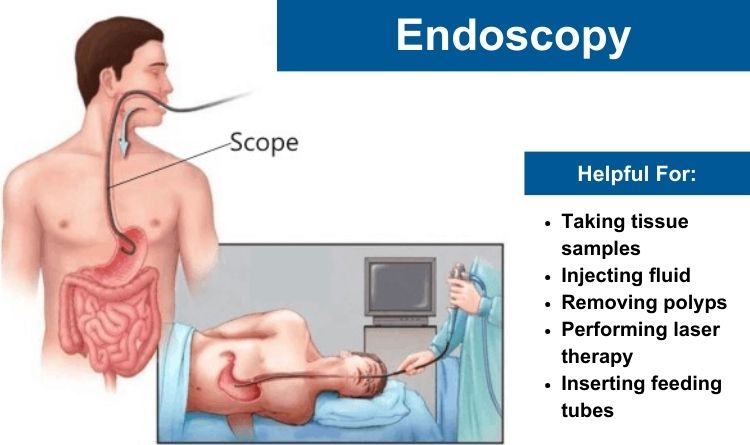
An endoscopic test for gastrointestinal diseases is a minimally invasive procedure for diagnosing and treating various digestive disorders. A thin tube (endoscope) with light and a camera attached is inserted via the mouth or anus for diagnostic purposes.
The endoscope is inserted with small tools attached to it for treatment purposes. These tools are helpful for:
- Taking tissue samples
- To open up a narrowed area
- Injecting fluid
- Removing food and other particles stuck in the GI tract
- Removing polyps and other cysts
- Performing laser therapy
- Inserting feeding tubes
An endoscopy before gastrointestinal surgeries helps surgeons find any obstruction or unwanted growth in the digestive tract. If any such abnormality is found, it requires additional treatment.
The endoscopy also helps find disorders in the lining of the tract, such as ulcers. Pain meds like NSAIDs are usually prescribed after surgery, which can aggravate such conditions. Modifying doses and using antacids becomes necessary for such patients.
Barium Swallow and Enema
A barium test, specifically a barium swallow or barium enema, is conducted before gastrointestinal surgery for various reasons such as:
- A barium test involves swallowing or rectally administering a contrast material (barium), which makes the gastrointestinal tract visible on X-rays. This provides a clear and detailed view of your stomach, esophagus, intestines, or colon, depending on the type of test.
- Barium tests identify structural issues, blockages, ulcers, tumors, diverticula, and other conditions within the digestive system. Detecting these issues is crucial for surgical planning.
- When abnormalities are found, surgeons can use the results of the barium test to tailor their surgical approach.
- By providing detailed information about the condition of your gastrointestinal tract, barium tests help assess the overall risk associated with surgery.
- A barium test before gastrointestinal surgery is a diagnostic tool that allows healthcare providers to evaluate the condition of your digestive tract thoroughly.
Preoperative Tests for Lower GI Surgeries
Colonoscopy
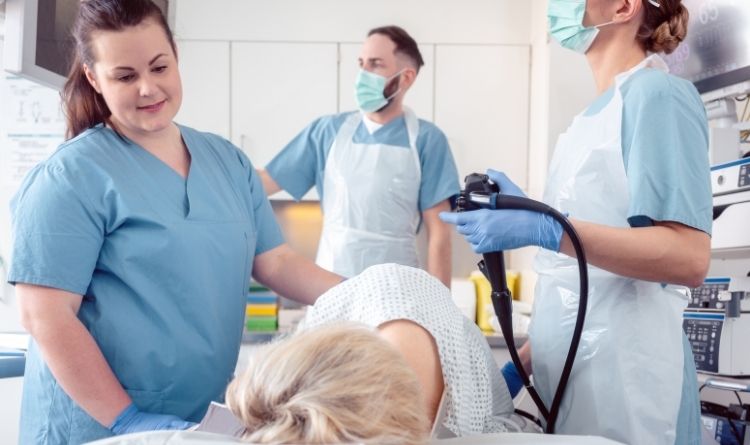
In a colonoscopy, a thin, bendable tube with a light and a camera attached is sent upwards to the colon via the rectum. The procedure enables the surgeon to have a look at the complete colon.
Colonoscopies are recommended prior to gastrointestinal surgery for:
- Surgical Planning: If problems are found during the colonoscopy, your surgeon can adjust their surgical plan accordingly. For example, they might need to remove a polyp or address inflammation during the same procedure.
- Risk Reduction: Colonoscopy can help reduce the risk of complications during and after gastrointestinal surgery. Removing polyps or addressing inflammation early can lower the chance of problems arising during surgery, such as bleeding or infection.
- Cancer Detection: Colonoscopies are often recommended as routine screening by gastrointestinal surgeons for detecting colorectal cancer.
A colonoscopy helps doctors understand your digestive health, detect and address any problems, and ultimately ensures a safer and more effective surgical experience.
Kidney Function Tests
KFTs or kidney function tests determine the functioning of the kidneys. These tests measure how much toxins and waste are removed via urine. Various tests included in the kidney function test panel and their normal range are:
- Urea: 13-43 mg/dL
- Creatinine: 0.3-1.3 mg/dL
- Uric Acid: 3.5-7.2 mg/dL
- Calcium: 8.7-10.4 mg/dL
- Phosphorus: 2.4-5.1 mg/dL
Kidney function tests are essential before gastrointestinal surgery for several significant reasons:
- The kidneys process anesthesia drugs, and impaired kidney function can affect the metabolization of these drugs. Knowing your kidney function helps anesthesiologists tailor the anesthesia plan to ensure your safety during surgery.
- Renal excretion is the most common medication excretory pathway used during and after gastrointestinal surgeries. Assessing the ability of kidneys to excrete drugs is necessary for appropriate dosing.
- By assessing kidney function beforehand, medical teams can take steps to minimize complications such as acute kidney injury (AKI).
To Conclude
It goes without saying that undergoing surgery is a hassle and a risky job. However, the risks can be minimized by taking correct preoperative tests. If you are planning for gastrointestinal surgery, be sure that you consult the best surgeon and follow instructions correctly, including the tests advised. Accurate preoperative tests can save you from unwanted surgical complications and can lead to a better and faster recovery.





